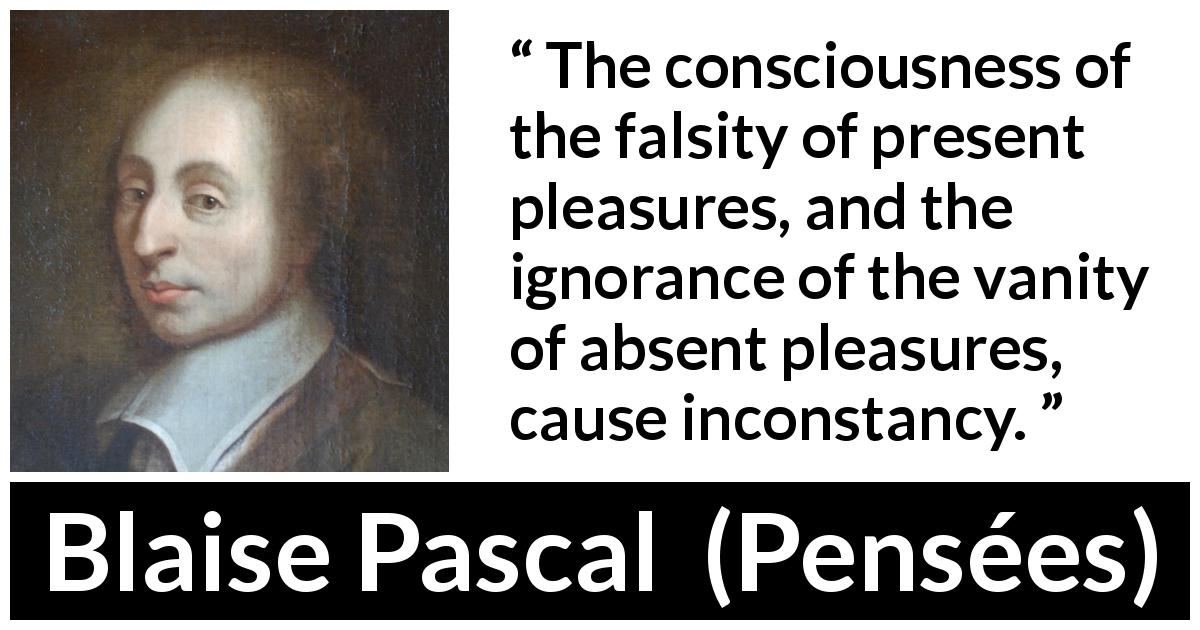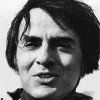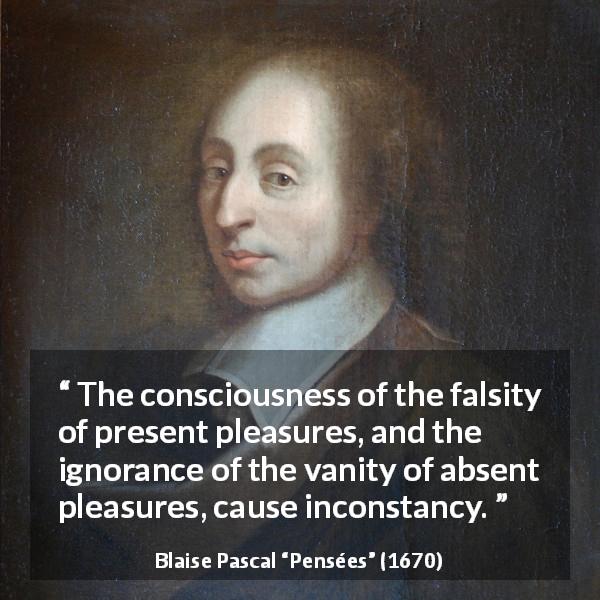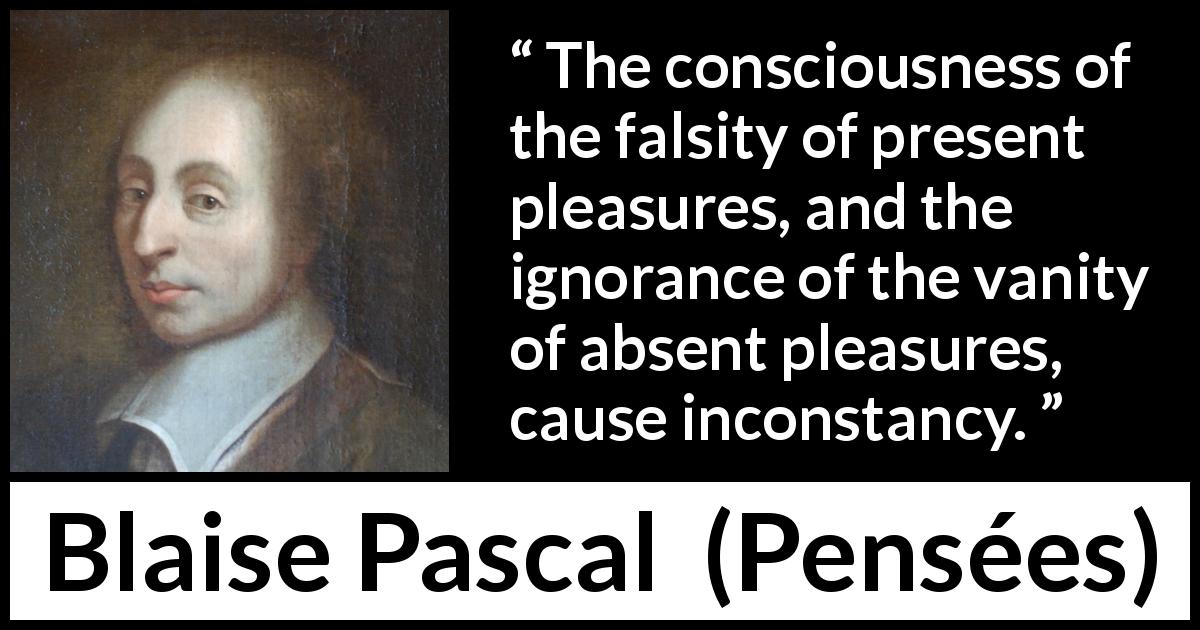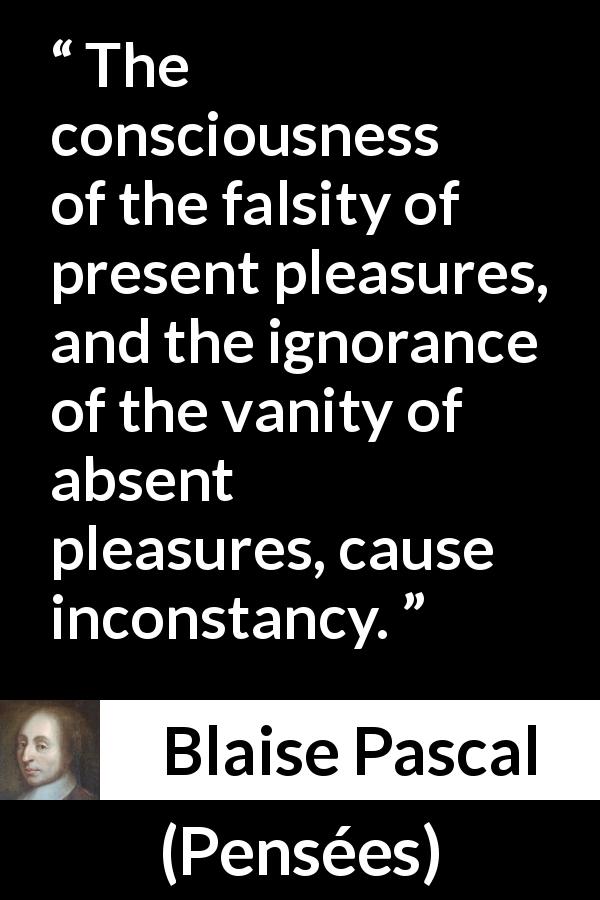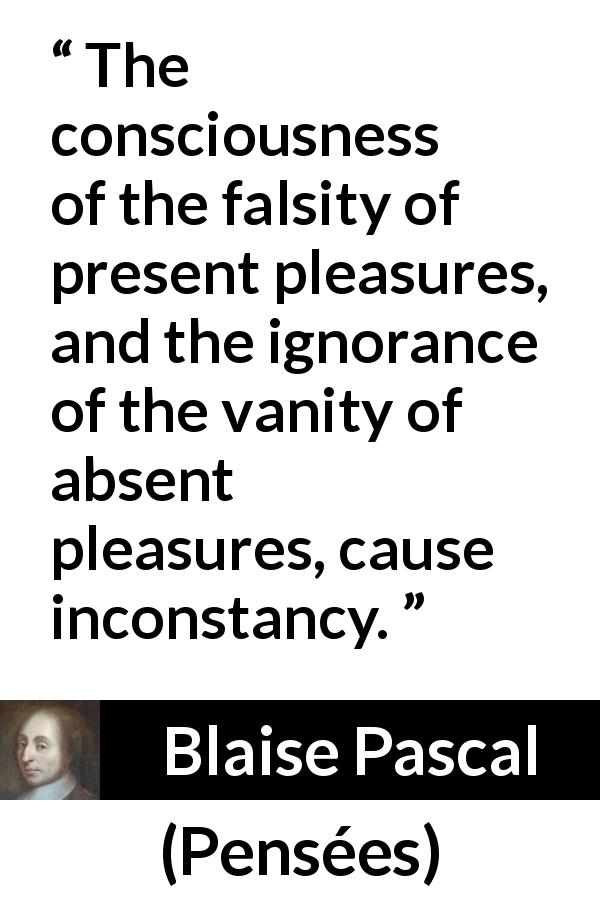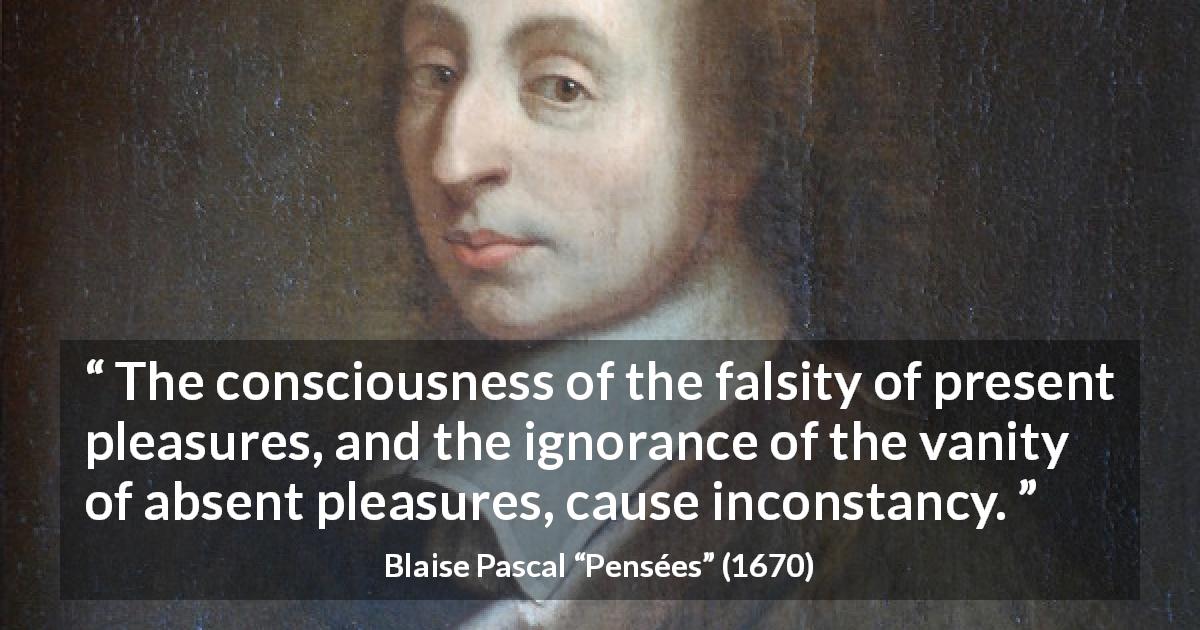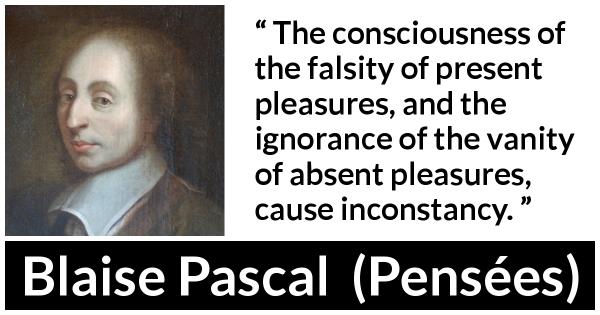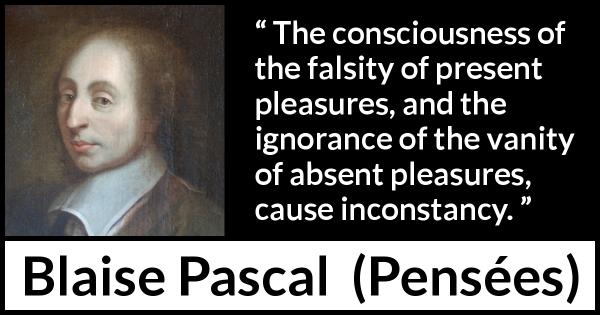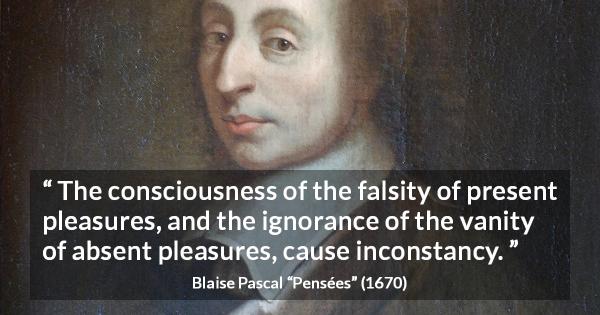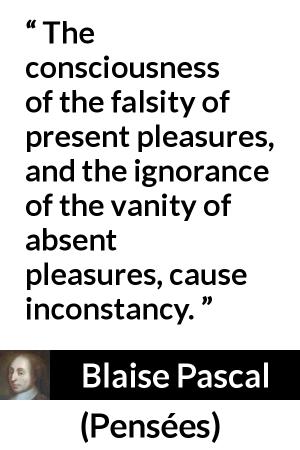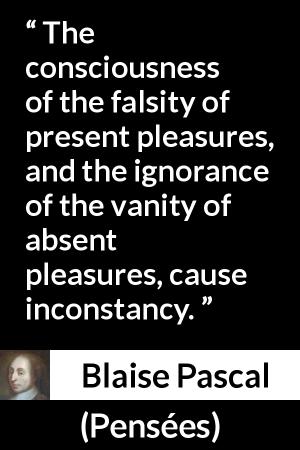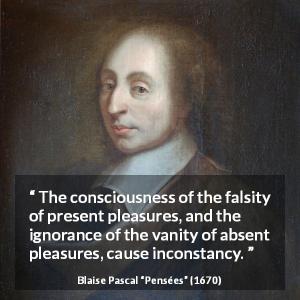“ The consciousness of the falsity of present pleasures, and the ignorance of the vanity of absent pleasures, cause inconstancy. ”
Blaise Pascal, Pensées (1670). copy citation
| Author | Blaise Pascal |
|---|---|
| Source | Pensées |
| Topic | pleasure vanity inconstancy |
| Date | 1670 |
| Language | English |
| Reference | |
| Note | Translated by W. F. Trotter |
| Weblink | http://www.gutenberg.org/files/18269/18269-h/18269-h.htm |
Context
“As nature makes us always unhappy in every state, our desires picture to us a happy state; because they add to the state in which we are the pleasures of the state in which we are not. And if we attained to these pleasures, we should not be happy after all; because we should have other desires natural to this new state.
We must particularise this general proposition…. 110 The consciousness of the falsity of present pleasures, and the ignorance of the vanity of absent pleasures, cause inconstancy. 111 Inconstancy.—We think we are playing on ordinary organs when playing upon man. Men are organs, it is true, but, odd, changeable, variable [with pipes not arranged in proper order. Those who only know how to play on ordinary organs] will not produce harmonies on these.” source
We must particularise this general proposition…. 110 The consciousness of the falsity of present pleasures, and the ignorance of the vanity of absent pleasures, cause inconstancy. 111 Inconstancy.—We think we are playing on ordinary organs when playing upon man. Men are organs, it is true, but, odd, changeable, variable [with pipes not arranged in proper order. Those who only know how to play on ordinary organs] will not produce harmonies on these.” source
